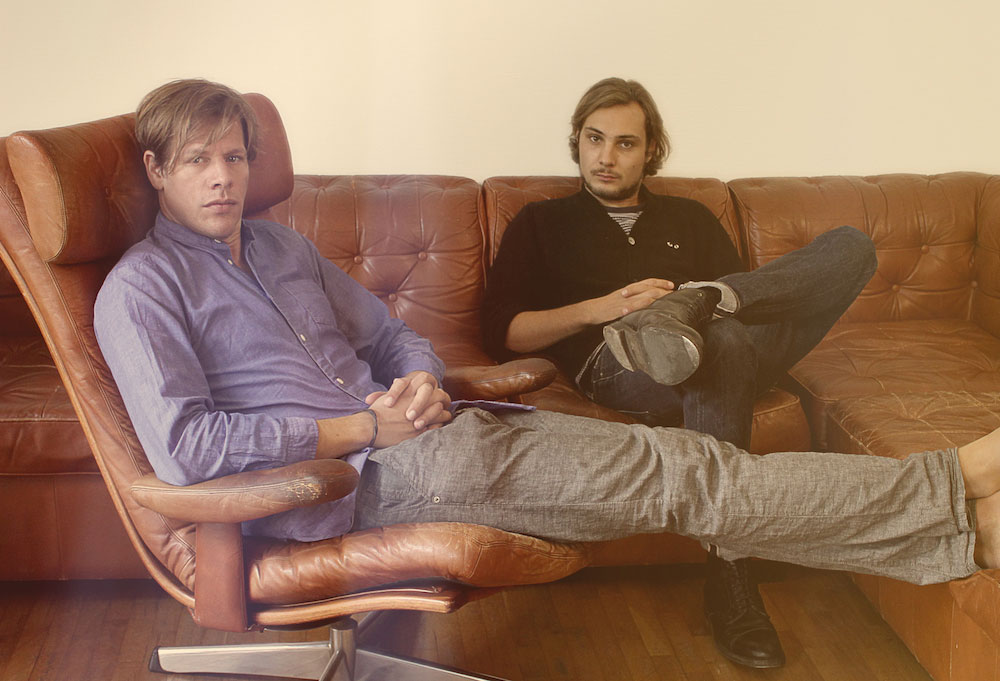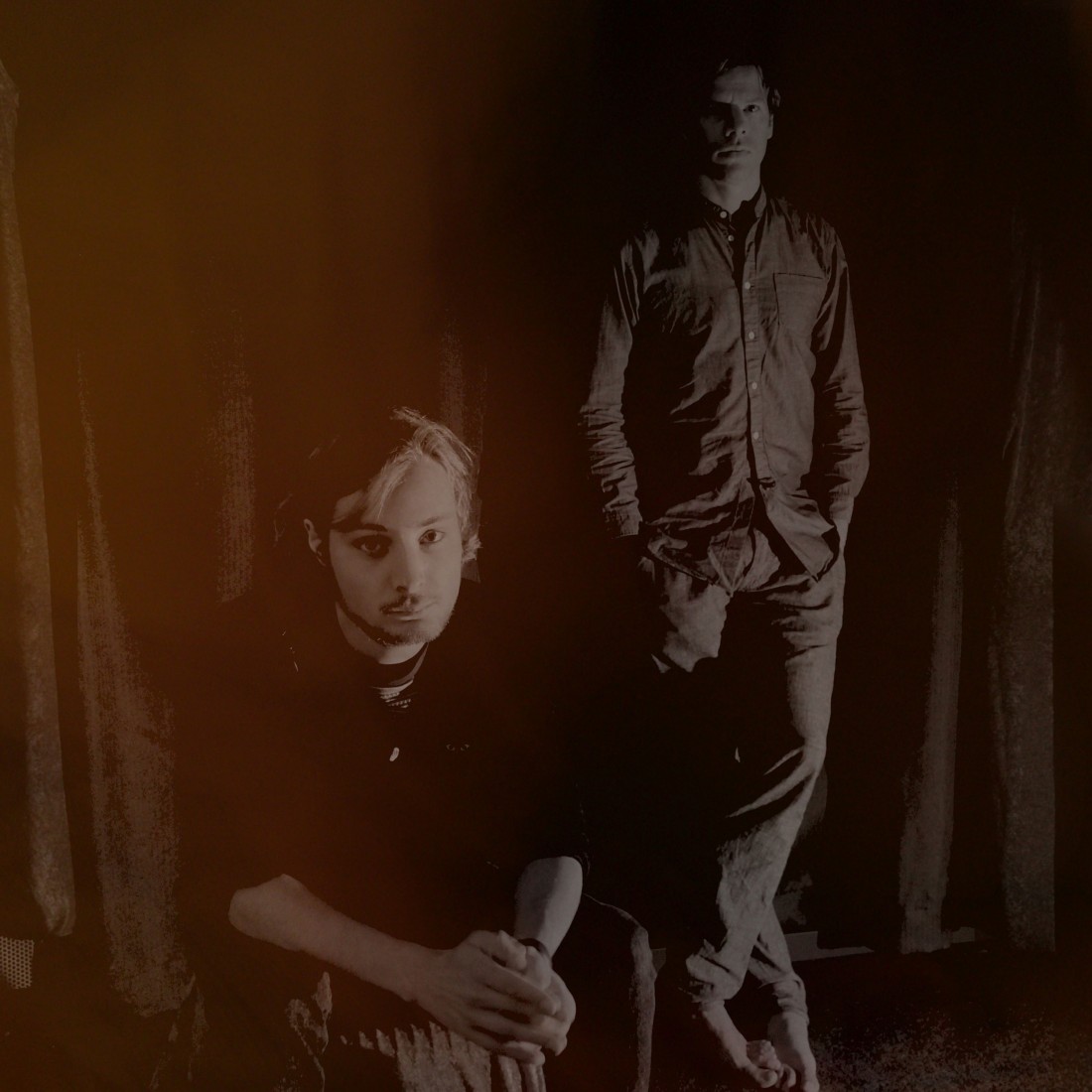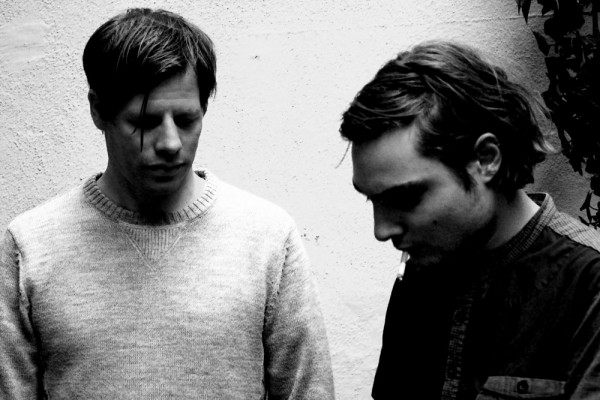“It was just like yoga: You get there, turn your brain off and just do it.”
In the late 90s the British author Kodwo Eshun established a very ethnologically influenced idea of music journalism. In his book “More Brilliant Than the Sun: Adventures in Sonic Fiction”, now seen as a standard work, he interweaves the history of ideas of Afro-American electronic music with subjects that are still supplying the discourse today, like afro-futurism. In a very personal way he not only overwrites the intention of the artists and exactly thereby captures them in their deepest meaning.
I’m very consciously introducing this piece on Vermont with a reference on Eshun, as the joint project of Marcus Worgull and Danilo Plessow, whom you might know from their productions on Innervision or Motor City Drum Ensemble, is inviting in an Eshunic sense. I immediately had to think of the American state Vermont and its history as the nucleus of the witch trials in the 17th century, when, starting from the little city Salem, an epidemic seized the North-East of the USA and there were stonings and incarcerations. The echo of these events can still be heard today, three centuries later, in witch house and a band called Salem.
But are this also the references of Vermont? Do they understand themselves as an aural-political reaction to the oppressive new zeitgeist that has over the course of the last years haunted first Europe and later America? At a place where Kodwo Eshun likes to let his thoughts circulate with themselves I prefer to give the protagonists the chance to speak.
We are meeting at Kompakt record store. Worgull and Plessow are releasing “II”, just as its predecessor, on the associated label with the same name. Just before we are starting with the actual interview Plessow is telling us about the Warehouse Project Festival, where he played the weekend before, a proper rave where among others Jeff Mills, Bice and Midland played records, as well as his new place of residence Paris and its great record stores that are selling more records than ever.
Paris is a good cue to guide the discussion to Vermont and the evolution and work conditions of the project. What once started as a relationship in Cologne, turned by now into a commuting relationship between the Seine and the Rhine. “We briefly knew each other before Danilo moved to Cologne”, remembers Marcus Worgull. “He stopped by Groove Attack record store every now and then, and at some point we met in his studio to jam for a bit while drinking beer. But we never had a plan to release the house stuff that resulted from this – until one Monday night when we didn’t feel like drum computers and just didn’t use them.”
Three songs that had been produced at that night made it onto “Vermont” and thereby determined the direction for what the two of them are calling “music without beats that is fun.” Danilo Plessow stresses how elemental it is for the project that there “is no pressure, as opposed to our solo careers: No bringing anything into question, no structures – and above all no deadlines! It was just like yoga: you get there, turn your brain off and just do it.”
What are music journalists good for if the musicians are able to classify their music as properly as this? Actually, the music of Vermont is first and foremost one thing: Deeply relaxed. It doesn’t provoke the listener but bestows them with a place to calm down. A common need of Danilo Plessow and Marcus Worgull. As different as the sound worlds are that the two of them are usually located in (Plessow playful and influenced by soul, jazz and funk, Worgull deep in the best deep house sense), as similar is the certain degree of exhaustion they both are experiencing. When Worgull is talking about “being completely wiped out” you might at first take it as a coy exaggeration but quickly realize that he is totally serious. “All that Vermont is about is that the music feels pleasant”, he adds to corroborate his explanation. “Although there might be songs that crunch or are annoying, that is not what we are looking for, we are aiming for the little haven.” Danilo Plessow emphasizes that it should not be taken for granted but that devotion is required: “We are taking a lot of time for Vermont. No matter if we are in a difficult life situation or are completely wiped out from the last weekend, as soon as we enter the studio we are getting into the comfort bubble: “Great, no bass drum! No place where something is! – It feels like a spa. That’s what gives the whole thing its soul.”
A good place to get back to Kodwo Eshun, the witch hunt and the possible political implication of Vermont. No, their sound world and the withdrawal it includes has nothing to do with the socio-politic status quo out there. It is only shaped by individual needs. Although they are wisecracking that they maybe should consider founding a yoga party on the basis of Vermont.
Plessow recounts that there were people in their respective surroundings who questioned what it all is about. “But for me it is much more important that I am on the same level with the other person in the studio instead of having Vermont turn out consistent with our DJ-sets and appearing cool for our profiles.” He once more emphasizes the issue of fun – and the cathartic effect making music has for him: “I started playing drums when I was six years old and haven’t done anything else in my whole life, I can’t imagine a life without music, as it is not a means to an end but my Self. I would also make music if I weren’t successful as I can express my feelings through it and can be honest with myself.” Worgull describes his circumstances a bit differently: “Making music for me arises out of the interest for other people’s music. Although I also started taking piano lessons from age eight, was in a choir and had a band when I was pretty young – but this history of making music has only very little influence on what I’m doing nowadays as a producer.”
That “Vermont” receives a successor with “II” came along naturally in keeping with the relaxed attitude of the project. At first they were surprised about the positive reactions all over the world, note Danilo Plessow and Marcus Worgull – and then they waited until the appetite returned, or rather the pawing need for a calm apart from the dance floor. This is the reason why the prevailing mood of “Vermont” and “II” are so similar. Plessow states: “We are using certain synthesizers in a special way that feels very intuitive for Vermont. Therefore we don’t have to search for a long time, but the sounds and songs are coming to us rather automatically. It has always been immediately clear how something sounds and what is possible. A synthesizer like the ARP Odyssey has a basal sound that is extremely great and extremely musical, it is different from the modular systems where you have to tinker around for hours until it sounds great – the ARP Odyssey sounds great immediately. It is about spontaneity, catching the moment and letting go of endless reflection.”
Even though the set up is effectively the same which means that there is a high degree of homogeneity the slightly different atmosphere is apparent. “Oh yeah?”, Worgull retorts provokingly with a counter question. But Plessow immediately understand what I’m trying to say: “If you wanted to be malicious you could say that the second record turned out less experimental. But to me it feels more homogenous in a positive way, like “that’s the mood” – but then there are ten variations of it. It’s comfort music.”
Comfort music that would be positioned in the area between cosmic music and krautrock by its producers. Subsequently names like Cluster, Harmonia and Brian Eno are coming up – and it surely is no coincidence that there is an app from Eno called Bloom that includes the tone colour Vermont and promises endless music productions.
As much and as primarily as Vermont is ambient so distinctly are the soul and funk vibes of the thirteen songs on “II”. “Sure, if you use a Fender Rhodes it immediately get’s this feeling”, Plessow remarks and is happy about this attribution since these genres are “his subject”. And yet he adds that one should never forget that Vermont’s basic harmonies mostly are coming from Marcus Worgull and are being “kept simple in a positive sense”, while he “tends to approach it overly intellectual and tinker mean jazz chords into it”. “Marcus has this German thing: very structured, very minimal and trancey, so you can listen to the music endlessly.”
The desire for the endless trip is currently, next to Donald J. Trump, one of America’s biggest problem. The country is tormented bei a fiercely spreading opiate epidemic. Among other states the idyllic Vermont is being bogged down into a drug swamp at the moment, as the FAZ recently attested with an article titled “Ahornsirup und Heroin” (“Maple syrup and Heroin”). In this sense the yoga party would be the lesser evil and could represent the necessary link between the hipster havens like Williamsburg and Silver Lake and the spreading domestic American hopelessness.
Translation by Denise Oemcke

















